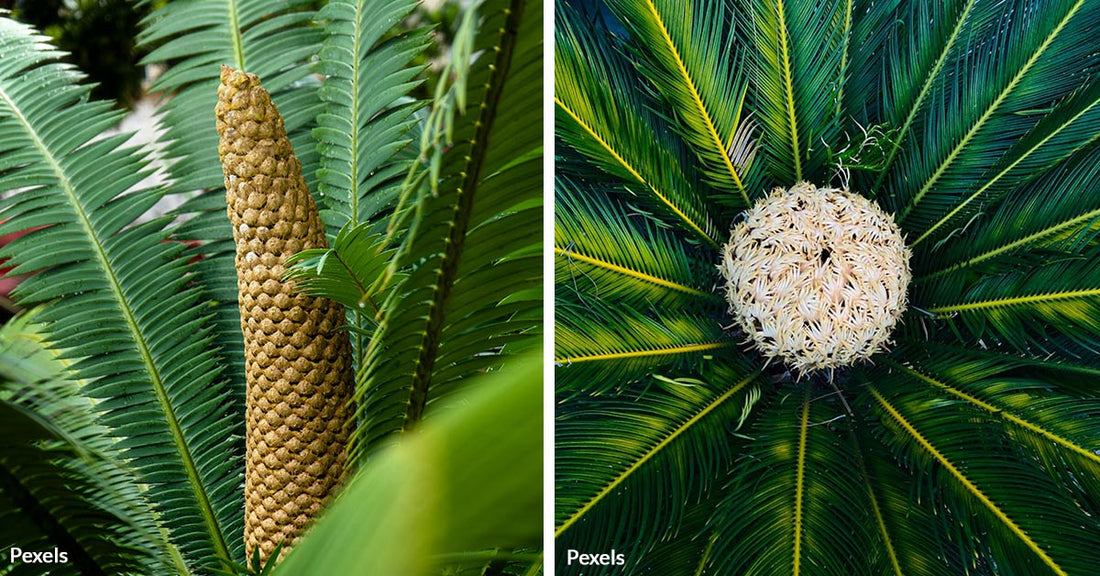Traffickers Destroy Fragile Ecosystems by Selling Rare Plants on eBay
Matthew Russell
The global trade in illegal wildlife has long been a known issue, but now a new frontier is emerging: plants. The illegal trade of rare and endangered plant species is thriving, often conducted in plain sight on major online platforms like eBay.
While eBay and other sites have taken steps to curb illegal sales, the ease and scale of transactions online make it a perfect marketplace for traffickers. From succulents to cacti, these plants, many poached from the wild, are sold to buyers around the world, fueling a dangerous and lucrative black market.

Thriving Markets, Threatened Species
Illegal plant trafficking has escalated in recent years, driven by rising global demand for rare species to adorn homes and gardens. Platforms like eBay have become central to this illicit trade, where traffickers can easily hide illegal goods among legitimate listings. In one shocking case, conservationists in South Africa have seized more than a million illegally harvested succulent plants since 2019.
These plants, often sold through online platforms, are native to South Africa’s fragile ecosystems, which are being decimated by the relentless poaching to meet global demand, according to Phys.org.
Many buyers don’t realize the environmental impact of their purchases. Plants that may appear to be harmless, often nursery-grown, are sometimes taken directly from the wild, further endangering their populations. According to Kew Gardens, the Royal Botanic Gardens, in collaboration with conservation group TRAFFIC, is working with eBay to improve online trading policies to prevent the sale of illegally harvested plants. Yet, the problem persists, as sellers can blend illegal plants into the market with little oversight.

Succulents, Cacti, and More: A Lucrative Trade
While succulents have become highly popular among plant enthusiasts, their beauty hides a darker reality. Native to the deserts of southern Africa, many of these plants are now endangered because of illegal poaching. Buyers, unaware of the plant’s origins, may be contributing to the destruction of entire ecosystems. The trafficking of these plants is not limited to succulents.
In Texas, the poaching of rare cacti, particularly the Ariocarpus fissuratus, has become a significant problem, with poachers selling the plants for high profits on international markets, according to the U.S. Fish and Wildlife Service. This slow-growing cactus, found only in a limited region, is illegally harvested and sold to collectors in Europe and Asia. Poachers, who often lack any regard for the environment, strip entire populations, leaving little hope for the plants to recover.
With plants taking decades to grow and mature, the damage done by these poachers is often irreversible. As the Denver Channel reports, these black-market trades contribute to the extinction risk of one-third of all cactus species.

eBay’s Response and the Role of Technology
eBay has faced significant criticism for its role in hosting illegal wildlife and plant sales. While the company has made efforts to combat these transactions, including the removal of 500,000 illegal items in 2023, the sheer volume of listings makes it difficult to monitor every sale. Platforms like eBay are now exploring partnerships with organizations like Kew Gardens and TRAFFIC to develop better policies and detection tools. One such tool, FloraGuard, a web-crawling algorithm, helps identify illegal plant sales by scanning online listings for keywords associated with endangered species.
As reported by Phys.org, this system provides conservationists with a valuable shortcut in monitoring the trade. Despite these advancements, the challenge remains. Sellers can easily list illegal plants under different names or categories, evading detection. And while some listings are caught, many more slip through the cracks.
According to Mongabay, the surface web, including platforms like eBay, is outpacing even the dark web in illegal wildlife and plant trade. Researchers argue that while machine learning holds promise in detecting illegal sales, current efforts fall short because of a lack of engagement from online platforms.

The Human Cost
Illegal plant trade is not just about plants. The rise of online trafficking also involves organized crime networks, which exploit local communities to poach and smuggle these rare species. In South Africa, criminal syndicates recruit local people to illegally harvest succulents from protected areas, depriving them of legitimate sources of income and threatening the biodiversity of their environments, Kew Gardens reports.
These crimes also have economic implications for the countries where poaching is rampant, as they lose out on potential revenues from legal, sustainable trade. For plant enthusiasts, this raises a crucial question: How can they ensure their purchases are ethical?
Conservationists advise buyers to do their research, verifying the source of the plants and checking for certifications from trusted organizations like FairWild. Supporting certified nurseries and avoiding sellers who cannot provide proper documentation is one way to help combat the illegal trade.

A Long Road Ahead
The fight against illegal plant trafficking is far from over. While collaborations between conservationists, governments, and online platforms are a step in the right direction, much work remains to be done.
The allure of exotic and rare plants continues to fuel demand, and with it, the black market will persist. For now, consumers must play a vital role by making informed decisions and supporting ethical plant trade. The stakes are high—not just for the plants, but for the ecosystems that rely on them.
Click below to take action against illegal plant sales online!

